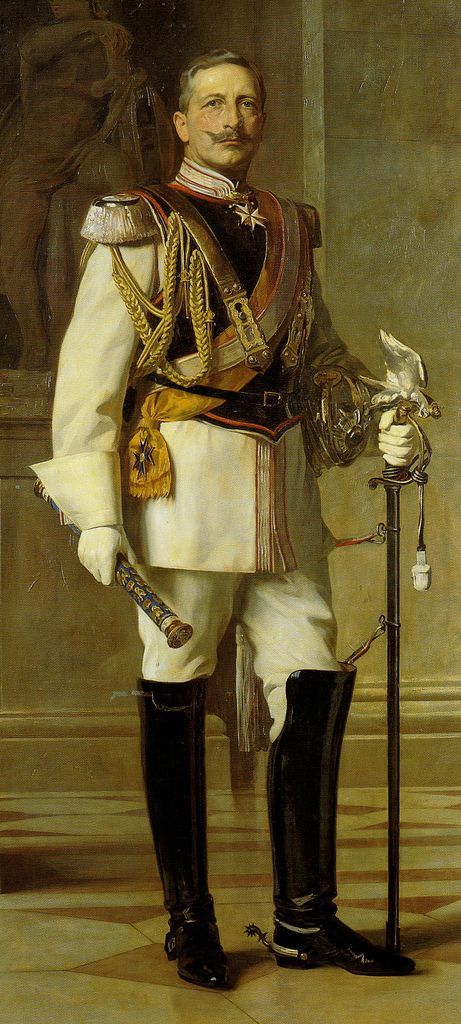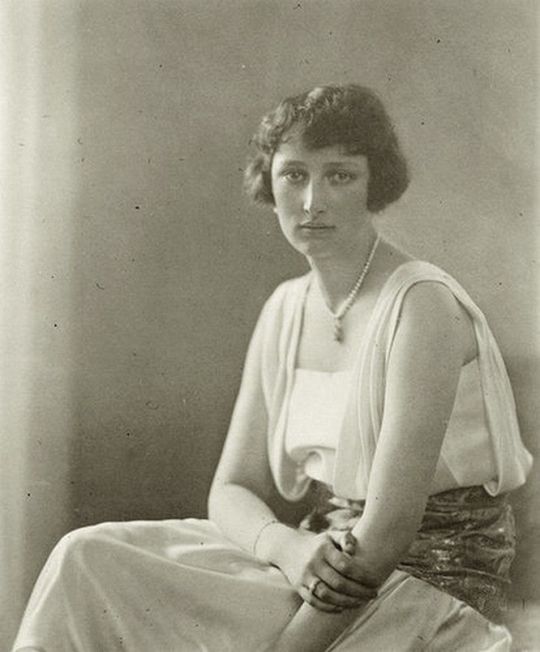#heinrich xiii
Text
A power-crazed president. A coup plot centered around an armed group taking over the meeting place of the country’s law makers.
No, I’m not talking about Trump and the terrorists who invaded the US Capitol in January of 2021.
Events in two other countries reminded us on Wednesday that we constantly need to stand on guard for democracy.
First to Peru. 🇵🇪
Peru president removed from office and charged with 'rebellion' after alleged coup attempt
Peru’s president, Pedro Castillo, has been removed from office and detained on charges of “rebellion” after he announced he would shutter congress and install a “government of exception” – just hours before he was due to face an impeachment vote.
[ ... ]
In a televised speech, Castillo said he would temporarily shut down congress, launch a “government of exception” to rule by decree and called for new legislative elections.
The move immediately prompted mass resignations from the cabinet, and accusations that Castillo had attempted to seize power illegally.
“I strongly condemn this coup d’état and call on the international community to assist in the democratic re-establishment of democracy in Peru,” tweeted the foreign minister, César Landa, as he announced his resignation. “Castillo took this decision without my knowledge or support.”
Castillo’s bid to avoid an impeachment vote swiftly turned into an own goal as the armed forces and the police withdrew their support, saying, in a joint statement, that Castillo’s move was “contrary to the established constitutional order”.
Meanwhile, Peru’s constitutional court called Castillo’s decision to dissolve congress “a coup” and said the leader was no longer in charge of the country.
[ ... ]
Castillo became president winning by the narrowest of margins in June 2021, shaking up the country’s entrenched class system.
[ ... ]
But the novice president made numerous blunders, appointing barely qualified ministers and accumulating allegations of corruption and influence trafficking linked to his family and allies, which were investigated by the public prosecutor’s office.
[ ... ]
The public prosecutor’s office confirmed late on Wednesday that Castillo had been arrested and charged with allegedly “breaching constitutional order”, after he was accused of an attempted coup and seen fleeing the presidential palace.
Earlier in the day, the country’s national police tweeted that “former president” Pedro Castillo had been detained, shortly after congress voted to remove him.
And meanwhile in Germany. 🇩🇪
'Glimpse Into the Abyss': Germany Takes Out Far-Right Coup Plotters
German police carried out massive raids on Wednesday on a suspected far-right terrorist network which was allegedly plotting to violently overthrow the government.
The network was headed by a minor aristocrat and contained special forces soldiers and a former MP.
Germany’s public service-run Tagesschau reported that with 3,000 police officers targeting 130 locations, the raids were probably the biggest anti-terror operation in modern German history.
The network belonged to the radical Reichsbürger (“Reich citizens”) scene – followers of a distinctly German strand of sovereign citizen ideology, who believe the modern German state is illegitimate, and controlled by a shadowy “deep state.”
Prosecutors said the group believed in a mix of conspiracy ideologies including QAnon, and had even tried to establish contacts with representatives of Russia, who they delusionally believed would help them achieve their goals.
[ ... ]
The morning raids targeted 130 locations across 11 German states. Twenty-five suspects were arrested, including one in Austria and another in Italy, with 22 accused of being members of the alleged terror network, and three others of having acted as supporters. All but one of the arrested suspects were German nationals, bar one Russian national, referred by prosecutors only as Vitalia B, in line with German privacy laws, who is alleged to have helped the network’s attempts to establish contacts with Russia.
[ ... ]
“This isn’t just one of the biggest raids against the far right in Germany in years, it’s actually the largest anti-terror raid ever here,” said Nicholas Potter, an expert on right-wing extremism at the Amadeu Antonio Foundation, a Berlin-based anti-racism organisation..
[ ... ]
“Their plans were very concrete: they wanted to attack the energy grid, storm the Bundestag, establish a ‘new state order’ with their own ‘shadow cabinet’ in waiting, and try state prosecutors and judges at a trial they call Nuremberg 2.0. They wanted civil war. And they allegedly wanted it before Christmas. This is terrorism.”
So in Peru, Pedro Castillo was removed from office and arrested on the same day he tried to shut down Peru’s Congress. That’s what should have happened here on January 6th. Just as Castillo had desired to “rule by decree” Trump has since talked about terminating the US Constitution.
In Germany, an armed far right group with connections to QAnon (and perhaps Russia) was plotting to storm the Bundestag and seize control of the government. That plot is an echo of what happened at the US Capitol. There are still armed extremist groups in the US who are prepared to use force to forward their agenda.
Regardless of country, the real conflict in the world these days is between democracy and tyranny. Those of us who prefer democracy cannot afford to become distracted by minor internal divisions.
#perú#pedro castillo#rule by decree#failed coup#dina boluarte#deutschland#germany#attempted coup#coup plotters#qanon#russia#heinrich xiii#reichsbürger#bundesamt für verfassungsschutz#bundestag#democracy#rule of law#assault on the us capitol by pro-trump terrorists#donald trump#january 6th
3 notes
·
View notes
Text
You know shit really hit the fan when Germany makes it into the monologue of an US-American late night show... 🙄
youtube
1 note
·
View note
Text
Twenty-five people have been arrested in raids across Germany on suspicion of plotting to overthrow the government.
German reports say the group of far-right and ex-military figures planned to storm the parliament building, the Reichstag, and seize power.
A minor aristocrat described as Prince Heinrich XIII, 71, is alleged to have been central to their plans. According to federal prosecutors, he is one of two alleged ringleaders among those arrested across 11 German states.
The plotters are said to include members of the extremist Reichsbürger [Citizens of the Reich] movement, which has long been in the sights of German police over violent attacks and racist conspiracy theories. They also refuse to recognise the modern German state.
An estimated 50 men and women are alleged to have been part of the group, said to have plotted to overthrow the republic and replace it with a new state modelled on the Germany of 1871 - an empire called the Second Reich.
"We don't yet have a name for this group," said a spokeswoman for the federal prosecutor's office.
Three thousand officers took part in 130 raids across much of the country, with two people arrested in Austria and Italy. Those detained were due to be questioned later in the day.
Justice Minister Marco Buschmann tweeted that a major anti-terror operation was taking place and a suspected "armed attack on constitutional bodies was planned".
The federal prosecutor's office said the group had been plotting a violent coup since November 2021 and members of its central "Rat" (council) had since held regular meetings.
They had already established plans to rule Germany with departments covering health, justice and foreign affairs, the prosecutor said. Members understood they could only realise their goals by "military means and violence against state representatives" which included carrying out killings.
Investigators are thought to have got wind of the group when they uncovered a kidnap plot last April involving a gang who called themselves United Patriots.
They too were part of the Reichsbürger scene and had allegedly planned to abduct Health Minister Karl Lauterbach while also creating "civil war conditions" to bring about an end to Germany's democracy.
The latest plot is also said to have involved a former far-right AfD member of the lower house of parliament, the Bundestag, who was lined up to be installed as the group's justice minister, with Prince Heinrich as leader.
Heinrich XIII comes from an old noble family known as the House of Reuss, which ruled over parts of the modern eastern state of Thuringia until 1918. All the male members of the family were given the name Heinrich as well as a number.
As well as a shadow government, the plotters allegedly had plans for a military arm, with active and former members of the military a significant part of the coup plot, according to reports. They included ex-elite soldiers from special units. The aim of military arm was to eliminate democratic bodies at local level, prosecutors said.
One of those under investigation is a member of the Special Commando Forces, and police searched his home and his room at the Graf-Zeppelin military base in Calw, south-west of Stuttgart.
#world politics#world news#news#2022#germany#coup#Reichstag#Prince Heinrich XIII#Reichsbürger#Citizens of the Reich#alt right#Second Reich#Austria#italy#Justice Minister Marco Buschmann#United Patriots#Karl Lauterbach#Bundestag#House of Reuss#Special Commando Forces#europe
24 notes
·
View notes
Text
XIII. Heinrich herceg letartóztatása
XIII. Heinrich herceg letartóztatása
Letartóztattak egy német herceget szélsőjobboldali összeesküvésszervezésének vádjával. A németországi ügyészek és hírszerzési tisztviselők azzal vádolták XIII. Heinrich herceget, hogy találkozókat szervezett a türingiai Bad Lobensteinben lévő vadászkastélyában. Azt állítják, hogy ő és szélsőjobboldali összeesküvők egy csoportja a német kormány megdöntésére és a kancellár kivégzésére készült.
A…

View On WordPress
0 notes
Text
German prosecutors have charged 27 suspected far-right extremists with planning a violent coup.
The suspects are accused of membership of the fringe Reichsbürger - or Citizens of the Reich - movement.
"The members of the group strongly rejected state institutions and the free democratic constitutional order," according to the indictment.
They are mostly associates of Heinrich XIII Prince Reuss, a Reichsbürger figurehead from an aristocratic family.
Prosecutors have charged the 27 people with planning to overthrow Germany's democratic political system.
Concrete preparations were made for a coup beginning in summer 2021.
The plan was to seize power by invading the Bundestag, Germany's parliament, with a small group of armed personnel. The assault would be launched after receiving a signal, such as the death of Queen Elizabeth II.
The alleged plotters had already determined how their new state would function after the coup.
Prince Reuss was planned to be head of state. On taking office, he would negotiate a peace treaty with the Allied powers which won World War II. Prince Reuss tried to meet representatives of the Russian government to gain support for the coup, according to prosecutors.
Birgit Malsack-Winkemann, then a member of the Bundestag for the far-right Alternative for Germany party, would have been made justice minister. Prosecutors said she granted access to parliamentary buildings to other co-conspirators.
The would-be rebels are alleged to have attempted to recruit soldiers and police officers.
The group had drawn up lists of enemies. Members were aware that their plans would result in people being killed, according to the indictment.
Members were made to sign a declaration of secrecy. Violators would have been executed for high treason.
The suspected plotters had access to about 380 firearms and 148,000 rounds of ammunition.
Some of the accused were arrested in federal police raids last December.
According to the Office for the Protection of the Constitution, Germany's domestic intelligence agency, there are about 23,000 followers of the Reichsbürger movement in the country.
9 notes
·
View notes
Text
Zur Razzia:
Birgit Malsack-Winkemann
Frau Dr. Staatsstreich
Prinz Heinrich XIII.
Der Putsch-Prinz
17 notes
·
View notes
Text
youtube
When 25 people meet regularly, fantasize about a better Germany, imagine a new government and hoard a few swords and rifles, yes, then of course that's an incredible threat for the state where 3000 police officers have to be mobilized!
Incidentally, only 19 of the 25 people were arrested. One can therefore assume that the other 6 are paid informants from the "constitutional protection" whose task was to heat up the group and construct a "threat". This is a common method used by the state security service in Germany to manipulate public opinion that we have a "right-wing threat" that must be "fought with all legal means"; while arab clans control entire districts and antifa terrorizes political opponents, also paid for by the state.
The group was observed by the Verfassungsschutz from the beginning. It was no coincidence that the state intervened now of all times, because just a few days ago, refugees killed a little schoolgirl; and climate terrorists have been desecrating cultural assets for months. Fighting a "right-wing coup" is the perfect antidote to distracting the public by shifting the issues onto something else; since there is also the fear of blackouts, unaffordable prices, waves of bankruptcies and and and… enough reasons to demonstrate some political power and patch the "we are a democracy" lie. But despite the huge police presence and international fluff, the effect fizzled out after just one day.
However, the fact that the next day nothing was reported anymore about it in the media, and instead fucking Ukraine, Putin and Corona topics dominated the daily news afresh, shows how ridiculous and artificially exaggerated the whole thing was. There was simply never this threat that justifies the "largest police operation in the history of the Federal Republic of Germany". Corona had already promoted a lot of pointless symbolic politics; but this police presence because of 25 dreamers of high age just tops everything. It's another desperate act of a corrupt system nearing its expiration date.
To the Background
Heinrich XIII. Prince Reuß belongs to half of Thuringia, most castles there. He has been fighting for compensation with the Federal Republic of Germany since reunification. Furthermore, Heinrich XIII. Prinz Reuß also gave international lectures, where he finally called for a peace treaty with Germany, since the UN lists Germany as an enemy state to this day. I wouldn't be surprised if all this was also a reason to take him out of circulation.
Calling him the head of a terrorist organization is pretty ridiculous. Apart from any fantasies, there are no concrete plans of a "seizure of power" at all. What we are experiencing here in the media is a huge pile of bullshit and lies. I hope Heinrich XIII. Prinz Reuß has good lawyers who will get him out with impunity. That would be such an embarrassment for this pathetic "colorful state".
In fact, the responsible public prosecutor's office had not yet formulated a statement of claim even after the arrest, since nothing concrete could be accused, apart from a vague suspicion of the "formation of a terrorist organization". If you applied this logic to the US, pretty much most Republicans who own guns and dream of a better America with a new government would have to be arrested.
This whole thing is totally constructed, a desperate act by a broken system to demonstrate and maintain its power. That has nothing to do with democracy.
12 notes
·
View notes
Text
9 notes
·
View notes
Text
On Dec. 7, authorities across Germany arrested at least 25 people in connection to a conspiracy to storm the Bundestag, attack the German power grid, and overthrow the German government. At least 25 others have been accused of involvement in the plot.
The conspirators modeled this attack, which they had been planning since November 2021, on the aborted attack by far-right supporters of former President Donald Trump on the U.S. Capitol on Jan. 6 of that year. But this isn’t a local imitation of an American original, although it combines German ideas with U.S. influence. It’s an intensely German group, rooted in a bizarre interpretation of German history.
This confluence of the local and the global is characteristic of German right-wing extremism, and it can produce unexpected results, as I’ve written before for Foreign Policy. Within these global linkages, many conspiracy theories—on the far left as well as the far right—have been incorporated into the QAnon intellectual space, and German conspiracy theories are no exception.
In this case, the conspirators are members of a disparate movement known as Reichsbürger, or “citizens of the Reich.” (This word can be plural or singular.) The Reich in this case is the Second Reich, the German empire that stood from 1871 to 1918.The ideology behind this movement has been promoted since the 1970s, when the jurist—and Holocaust denier—Manfred Roeder spread it in an attempt to revive both National Socialism and pre-Nazi imperial Germany.
The group’s basic idea is that the Federal Republic of Germany, the modern German government, does not exist. It maintains that the Third Reich, the Wilhelmine government’s successor—this complex of ideas seems to elide the Weimar Republic–was never formally dissolved in 1945, and that the modern German government is a tool of the Allied occupation, which is still ongoing. This belief system thereby combines hidden nostalgia for the Third Reich with overt nostalgia for the Second; for instance, many Reichsbürger followers want Germany to return to its 1937 borders. There is a powerful strain of antisemitism in it. These people have been compared to American and Canadian sovereign citizens; like sovereign citizens, many do not pay taxes. And like sovereign citizens, they can be violent: Reichsbürger were responsible for one murder in 2016 and nine in 2020.
In a dark reflection of German society in general, this conspiracy theory is profoundly legalistic. Reichsbürger believe that the republic is not a state but a private company founded in 1949 by the Allies, while the German Reich exists legally but without institutions—so the movement’s followers have taken it upon themselves to form “provisional” institutions. This pathological legalism appeals to people involved with Germany’s ordinary legalism: many members are former police officers, military officers, and civil servants. The people arrested on Dec. 7 include a former member of the Bundestag from the far-right AfD party, former East German state security, and former members of the German special forces.
They also included several German nobles, including one of the ringleaders, Heinrich XIII Prinz Reuss zu Köstritz. He is a minor noble—a very minor one. He is a prince, but the German states were once almost as thick with princes as Saudi Arabia—although for very different reasons. His princely status does not mean that he is related to the monarchy of the former empire, the family of the former Kaiser; it means that his family used to head principalities. (The Kaiser’s family is the Hohenzollerns. This Heinrich is a Reuss-Köstritz, although U.S. papers have mistaken him for a Reuss-Greiz, a branch of this multipartite family that ended legally in 1918 when its last head abdicated.) As with the vast majority of German nobles, even the word “aristocratic” is pushing it.
What has been keeping former East German state security, members of the far-right AfD party, monarchists without a monarch, fascists inside the German special forces, anti-vaccine activists, and believers in the QAnon conspiracy theory together?
One element is the unique politics of East Germany. The house of Reuss, in all eight of its parts, is Thuringian, and East German aristocrats felt betrayed after the reunification of Germany in 1990. They had hoped that reunification would mean a restoration of their status and their property, much of which was seized by East Germany’s communist government. That this did not happen radicalized many of them, just as East Germans more generally felt betrayed by the reunification.
But the East German radical fringe has also been shifting as it incorporates concepts from the global far right. In a rapid move away from 70 years of East German history, AfD adopted an anti-vaccine stance in late 2021 under the influence of the Querdenker movement and far-right groups in the United States. The worldwide far right may claim that it is for those left behind by globalism, that it is anti-United States, that it is anti-European Union, but right-wing extremists also “imagine themselves as participants in a global struggle against a global enemy.”
And yet the Reichsbürger movement remains intensely German. Linda Schlegel, writing for European Eye on Radicalization, describes the movement’s fixation on the fin de siècle German Empire as a form of displacement: “It is based on the wish to display patriotism overtly,” which many Germans still feel is taboo. Patriotism for the 19th century is safe, since National Socialism remains harmlessly in the future, as long as you ignore what Manfred Roeder believed. In this interpretation, Reichsbürger are yet another expression of the German attempt to come to grips with the historical trauma not only of having suffered evil, which can be expressed, but of having done it—which cannot.
In this context, the Dec. 7 conspirators’ beliefs as expressed in the official government statement made on their arrest are fascinating.
Like their QAnon cousins, this group believes that Germany is currently governed by members of a so-called deep state, which is their responsibility to fight against as part of a network of American-inflected domestic defense cells—in German, they were described with the same word that is used to translate “Homeland Security.”
But in another tortuous circle in Germany’s agonizing attempt to put its past finally behind it, this group also believes that the deep state is opposed by the “Alliance,” “a technically superior secret society of governments, intelligence services and militaries of different states, including the Russian Federation and the United States of America.” The intervention of this Alliance is imminent, since it is already in Germany.
This conspiratorial group therefore has awaited liberation by the United States and Russia, which it believes is their responsibility to aid. The group was supposed to form “a (military) transitional government” that “should negotiate the new state order in Germany with the victorious Allied powers of World War II.” In addition to having a Russian lover, Heinrich XIII had already made contact with a Russian individual for this purpose. That is to say, this little group has been roleplaying the formation of a nondemocratic German social order, to capitulate at its head.
Is this not Freud’s return of the repressed? These people sought to destroy the German constitutional democratic order in the name of an ideology developed originally by former Nazis, but also to negotiate a surrender agreement once again with the United States and Russia—and this time get it right. Even German visions of victory turn into compulsive repetitions of defeat.
6 notes
·
View notes
Link
The far-right coup plotters had mapped out their own government, with people chosen for cabinet-like roles if they succeeded in overthrowing Germany's elected leaders. That's among the revelations shared by German officials on Wednesday in an update on what they say was a conspiracy foiled by a massive anti-terrorism operation.
At least 25 people are under arrest, including 22 suspected members of a "terrorist organization," Public Prosecutor General Peter Frank said in a brief news conference.
The conspiracy's goal, Frank said, was to overturn "the existing state order in Germany based on democracy, using violence, and to replace it with their own state," according to a translation by Deutsche Welle.
Officials say the suspects include members of several far-right extremist groups and QAnon followers, and people who adhere to the Reichsbürger or "Reich citizens" movement, which holds that Germany's current constitution is invalid.
The group of conspiracists coalesced as early as November 2021, Frank said, uniting over their support for "Prince Heinrich XIII" — a 71-year-old man who has gained followers through his controversial political views. He is a minor aristocrat and member of the former German royal house of Reuss — which once included an actual Prince Heinrich XIII. But the monarchy was abolished when the Weimar Republic was founded in 1918.
Heinrich is among those who have been detained, Frank said. Others arrested include a Russian national, identified as "Vitalia B.," who is accused of supporting the plan, according to a news release from the federal prosecutor's office.
2 notes
·
View notes
Photo

#Repost @elhuffpost Al menos 25 personas han sido arrestadas en redadas ordenadas en toda Alemania bajo la sospecha de conspirar para derrocar al Gobierno democrático. Los medios alemanes están informando este miércoles de que entre los detenidos hay miembros de partidos de ultraderecha y también exmilitares, que habían planeado asaltar el edificio del parlamento, el Reichstag, y tomar el poder. Según informan estos medios, un hombre de 71 años, identificado como Heinrich XIII, en referencia a un viejo príncipe, era el cabecilla de estos planes. Ha sido detenido junto a sus dos lugartenientes principales, según han informado los fiscales de los 11 estados en los que se ha llevado a cabo la operación policial, en la que han participado unos 3.000 agentes y ha necesitado de 130 registros. Entre estos conspiradores se incluyen miembros del movimiento extremista Reichsbürger (Ciudadanos del Reich), que ha estado durante mucho tiempo en la mira de la policía alemana por ataques violentos y teorías de conspiración racistas. También se niegan a reconocer el estado alemán moderno. Se les investigará por “pertenencia a una organización terrorista”. Se cree que aproximadamente 50 hombres y mujeres formaron parte del grupo que supuestamente conspiró para derrocar la república y reemplazarla con un nuevo estado, inspirado en la Alemania de 1871. “Todavía no tenemos un nombre para este grupo”, dijo una portavoz de la oficina del fiscal federal. #alemania #golpedeestado #nazismo #politica https://www.instagram.com/p/Cl3Xbx3Oxwj/?igshid=NGJjMDIxMWI=
2 notes
·
View notes
Text
The eligible princesses of the 1920s
It was the headline in The New York Times that caught my attention. "Princess Spinsters Worry Sovereigns: Royal Daughters, coming of age all at once, exceed princely suitors in Europe...."European royalty is facing a crisis in family life which is giving no end of worry to the households of various sovereigns. The trouble is due to too many princesses coming of age simultaneously without enough royal princes to go around."
As we approach the 21st century, we may scoff at such headlines. But in the 1920s, marriage was largely the only option for royal princesses. The one exception was Crown Princess Juliana of the Netherlands, the only child of Queen Wilhelmina and Prince Hendrik of the Netherlands Prince Heinrich of Mecklenburg-Schwerin). Juliana was an eligible princess who was also the heir to her country's throne.
The dispatch acknowledged that there was a "growing popularity of marriages between royalty and the nobility." In 1923, Princess Jolanda of Italy married Italian count Giorgio Calvi di Bergolo, a member of the Italian aristocracy.
Virginia Pope, writing in 1929 in The New York Times, noted: "Husband hunting is no easy task for royal princesses nowadays. There are far fewer prospective crowned heads to choose from, and the uncertain future of thrones has caused princesses to look outside the charmed circle of royalty for their mates."
In other words, there were not enough princes to go around. The Great War was responsible not only for the deaths of millions of young men but was also the catalyst that brought down three of the most powerful thrones in Europe: Russia, Germany, and Austria.


Kaiser Wilhelm II of Germany and Emperor Karl I of Austria spent their final years in exile.

The Bolsheviks murdered the Russian Emperor and his family. Had they survived, the four daughters of Nicholas II,Olga, Tatiana, Maria, and Anastasia, would certainly have topped most lists as the most eligible young royal women.




despite his hemophilia, Alexis' position as heir to the Russian imperial throne, would have meant a brilliant dynastic marriage.

The surviving Romanovs, as well as the Archduchesses of Austria and the princesses and duchesses of the former German ruling families, were no longer considered on the A-List for marital consideration. The Greek princesses largely lost their allure when King George II was deposed in 1924.Seven years later, the former highly touted Infantas Beatriz and Maria Cristina of Spain experienced the same situation when their father, King Alfonso XIII, went into exile when Spain was declared a republic.As the New York Times article pointed out, marriages with the nobility were popular. In Britain, such marriages were becoming the norm as the first three royal weddings since the end of World War I was with members of the British aristocracy. On July 17, 1917, the day when the British Royal Family renounced their German titles and adopted Windsor as the name of the House, King George V wrote in his diary: "I've also informed the [Privy] Council that May and I decided some time ago that our children would be allowed to marry into British families. It was quite a historic occasion."
(It should be noted that before the accession of George I, it was not uncommon for a member of the English or Scottish royal families to marry into the noble families. Queen Victoria encouraged such marriages, as well. Her daughter, Louise, was married to the Duke of Argyll, and her granddaughter, Princess Louise of Wales, was the wife of the Duke of Fife).In February 1919, George V's cousin, Princess Patricia of Connaught married the Hon. Alexander Ramsay of Mar, the younger son of Earl of Dalhousie. The Princess, who preferred painting and country life to royal panoply, renounced her royal title, and following her marriage, she was known as The Lady Patricia Ramsay. It was also unlikely that George V's only daughter, Princess Mary, would marry a foreign prince, although some assumed she might marry her first cousin, Crown Prince Olav of Norway. In 1922, Mary married Viscount Lascelles, heir to Harewood earldom. Her parents supported the marriage, and her countrymen were delighted that the princess would remain in Britain. Crown Prince Olav aside, the majority of her suitors were British aristocrats, including Lord Lascelles, the Earl of Dalkeith, and Viscount Althorp, whose fathers were the Duke of Buccleuch and Earl Spencer, respectively. A generation earlier, however, Mary probably would have wed a German prince. But in 1922, it was untenable that a British princess would consider marriage with a German prince. The Great War was still fresh in Britain's memory.
One of Princess Mary's adult bridesmaids was Lady Elizabeth Bowes-Lyon, the youngest daughter of the Earl of Strathmore and Kinghorne. Lady Elizabeth had been briefly courted by Prince Paul of Yugoslavia, but she accepted the proposal from Mary's second brother, Prince Albert "Bertie," the Duke of York. They were married at Westminster Abbey in April 1923. "Duke of York Weds Simple Scots Maid; Throngs Hail Them," headlined The New York Times.

The princesses who emerged as the marital front runners in the 1920s included Jolanda, Mafalda, and Giovanna of Italy, the elder daughters of King Vittorio Emanuele III and his Montenegrin wife, Elena



Princess Ingrid of Sweden, only daughter of Crown Prince Gustav Adolf of Sweden

and her cousins, Martha and Astrid, the younger daughters of Prince Carl and Princess Ingeborg


Crown Princess Juliana of the Netherlands

Princess Marie-José of Belgium

Infanta Beatriz of Spain

Princesses Elisabeth of romania

Princesses maria of romania

Princesses Ileana of romania

5 notes
·
View notes
Text
One of Germany's top officials said Sunday that the country's gun laws needed to be strengthened in the aftermath of a suspected coup d'etat attempt by far-right insurrectionists.
In an interview with German newspaper Bild am Sonntag, Interior Minister Nancy Faeser said the plotters were "not harmless crazy people but suspected terrorists who are now sitting in pre-trial detention." She added that German authorities needed to "exert maximum pressure" to take their firearms away, and said that the government would "shortly further tighten gun laws."
Faeser's comments come following a nationwide raid across Germany last week to stop a suspected violent overthrow of the government. Police arrested 25 people last week in relation to the plot, which reportedly aimed to install a far-right real estate broker who goes by Prince Heinrich XIII as the new head of state.
Most of those thought to be involved with the coup were members of the Reichsbürger movement, which Politico described as a far-right group "which refuses to recognize the modern German state and aims to replace it with an authoritarian new system."
Faeser said the Reichsbürger movement represented a growing threat to Germany, and had expanded by 2,000 to 23,000 people in the last year. While authorities have confiscated weapons from at least 1,000 members, another 500 are suspected to hold firearms licenses, per Reuters.
Germany already has some of the strictest gun laws in Europe. Private ownership of guns is rare in the country, and firearms licenses take a notoriously long time to obtain.
75 notes
·
View notes
Text
We Must Demand Prince Heinrich’s Release
Germany has gone too far this time. @rtrixie’s people are holding Heinrich XIII of Bavaria as a political prisoner! This must end!!!
1 note
·
View note